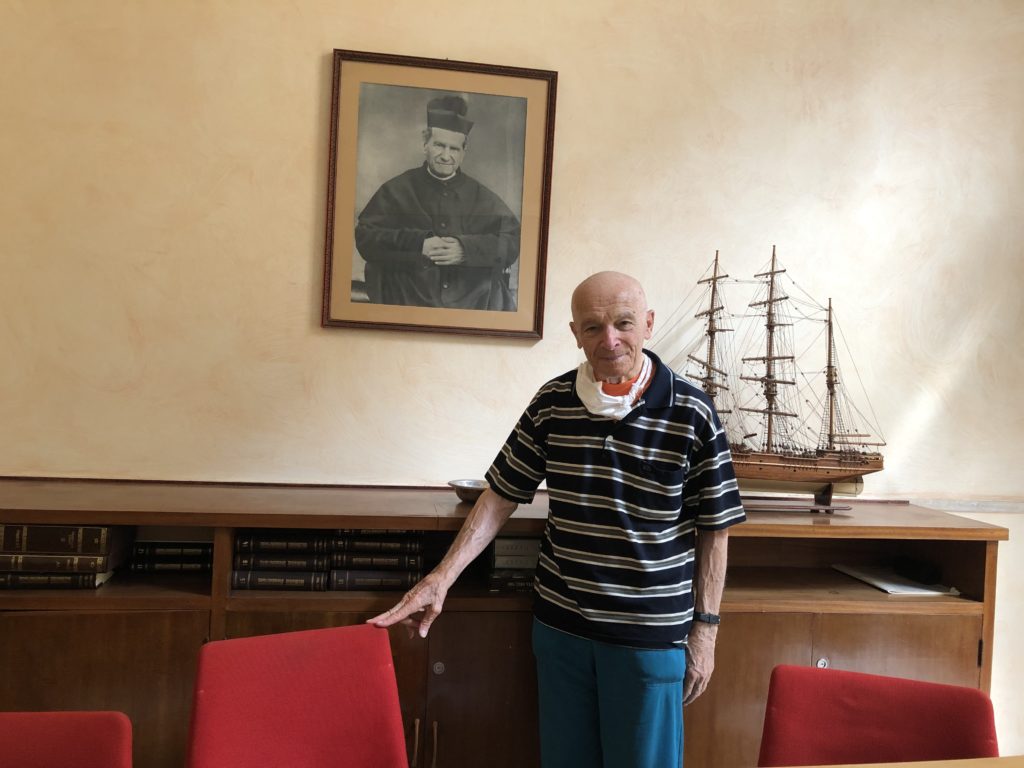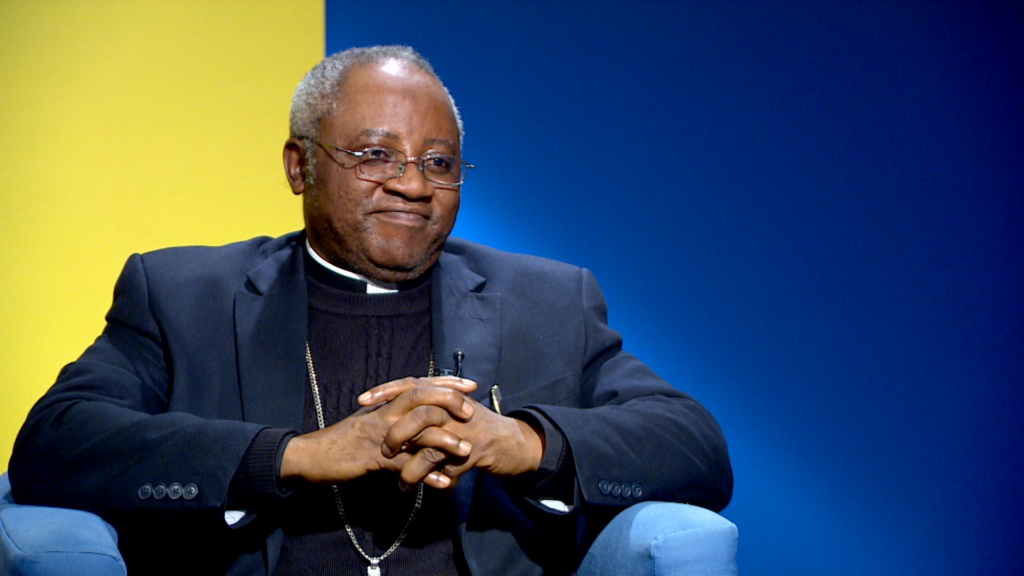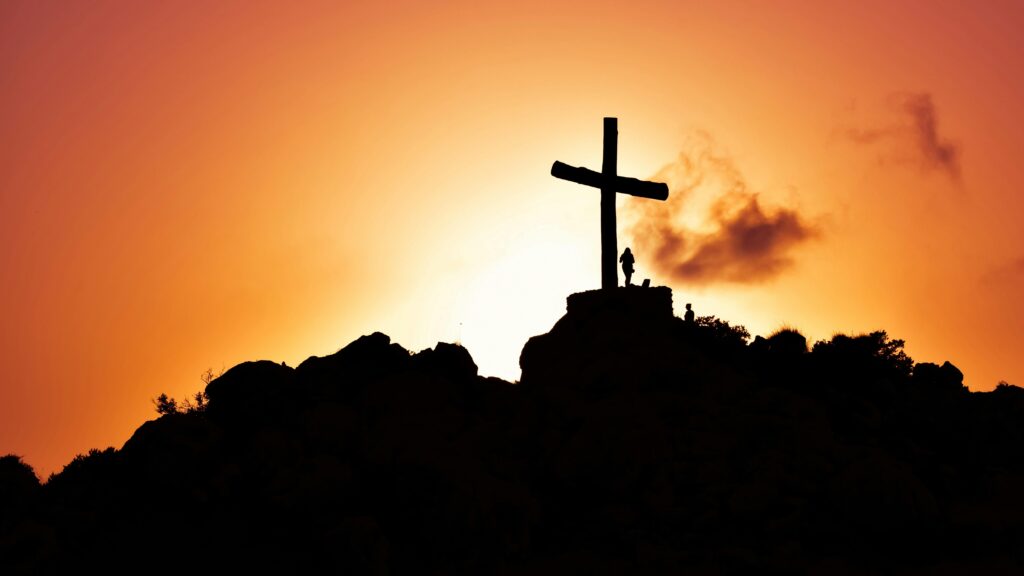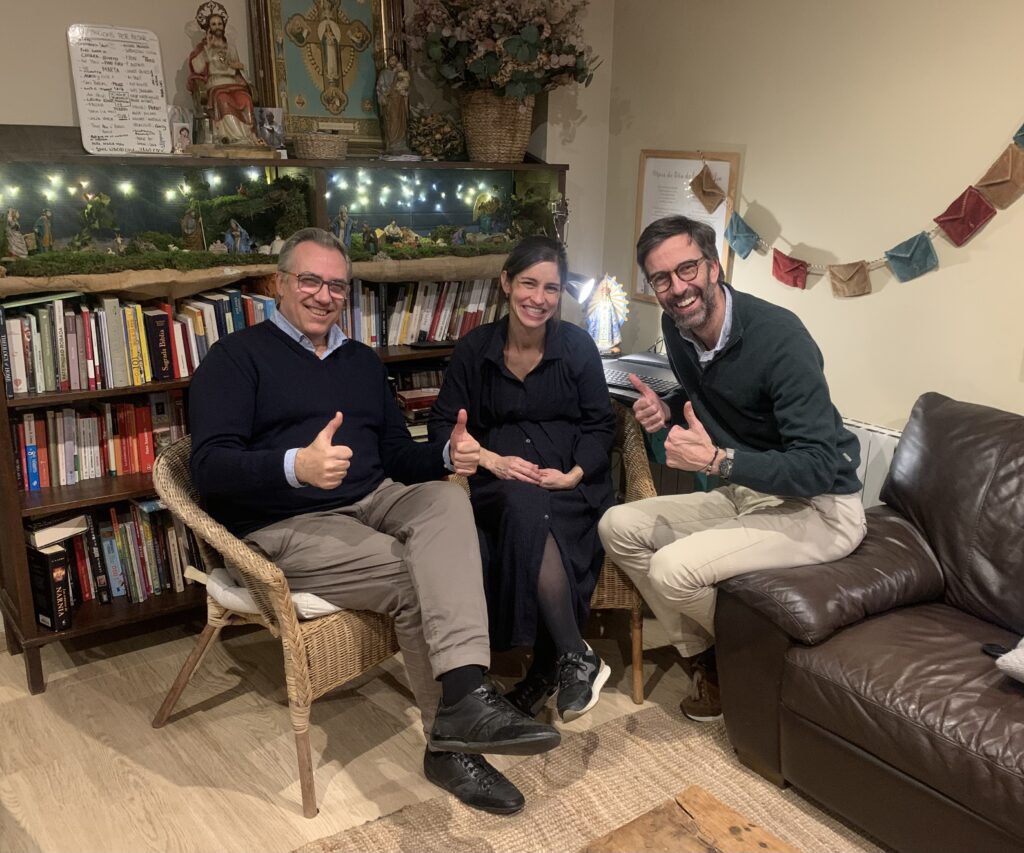Interview: Fr. Natale Tedoldi on Priestly Vocation
'We Need to Show Young Men that Our Life Has a Meaning, which Has Given Us Reasons for Joy'

Father Natale Tedoldi is a very famous personality in the city of Alassio, in the province of Savona, in Liguria, Italy, with his 73 years as a Salesian, 63 years as a priest and almost 92 years of age, he has always been a servant of Christ, willing to listen and help, a splendidly simple person. Dean of the Don Bosco Institute for 27 years, where he also taught, he was able to be appreciated by several generations of Alassianos,” but also by students that arrived from other areas of Italy. For 51 years Father Natale has been celebrating Mass at 8:30 am in the Capuchin parish, and for 44 years he goes up to the meteorological tower of the Don Bosco Institute to forecast the temperature and the hours of sun and rain for the coast of the Gulf of Genoa.
Today he talks to us about the essence of the priestly vocation, profoundly rooted in the teachings of Christ and in the need that young men have, for priests who will help with their example to discern the Lord’s voice.
* * *
“Vocations exist, it’s only a question of awakening them,” Father Natale. What is your opinion on this affirmation of Saint Pope John Paul II?
They are affirmations that are valuable and that also say the truth; however, to awaken vocations the latter must be present in every human being. Instead, I believe one cannot think that a vocation exists in all in the same way, as there are differences. In my opinion, a vocation is awakened if we present a purpose to young men, the meaning of consecrated life. If religious life seems to be something of the sacristy, characterized by acts of worship and mortuary celebrations, it can’t spark attraction. The functions, the rites, the celebrations are not the purpose of a vocation. The purpose is to live and preach Christ; therefore, we must be able to awaken the call with our life and with words, although the latter are less valuable.
We need to show young men that our life has meaning, which has given us reasons for joy, but also of sacrifice and suffering, certainly of renunciation, but with satisfaction for what each one of us has been and feels he is. Therefore, vocations awaken if there are already uncertain seeds.” Today I ask myself this: As priests, do we give the world the idea of having a purpose to which it is worthwhile to dedicate our whole life? I think that young men no longer read this beautiful and positive part of our life, where there is serenity and joy. They read the part of renunciation, which is something mistaken. I believe that to speak only of a dead Christ has led our religion on the path of sadness, that’s why our faith becomes vain. Rather, we must preach that Christ has resurrected!
God’s call is the clearest sign of the dialogue between the Creator and man. How many individuals are listening to His voice today? How can young men be helped to identify their vocation?
It is a very difficult question. I believe there is no immediate answer because, before anything, I would ask a lad: Do you believe in God? I don’t want if he would answer yes, I don’t know, because today there is a basic form of atheism in young people, as they have been presented with a God who is always distant and who, moreover, is a God that punishes. If we ask people, especially young people: Where is God” Who is God? We won’t get precise answers. I believe that now the Saints and the Virgin are more present than Christ. I believe that we have to begin with the question: What is your idea of God? Or ask in a more critical way: What idea of God have priests given you in their sermons? In my experience, the mentality of a distant God is very comfortable because it doesn’t commit one so much and I believe that the idea or description we give of God, more than bringing us close, distances us.
God is Father and Love, we also sing this in church: where there is charity and love, God is there,” in two persons that love one another God is loved . . . God is a reality within us! Perhaps if a young man understood that his life can develop in love, everything would change. We must ask ourselves how we must present the Gospel today, according to Christ’s true mentality, not with our profession of priests. Our life as priests is an expression of the love of God if one lives in love, in total respect of our vocation as mediators between God and men, and in respect of the dignity of every human being.

How was your vocation born?
My vocation was born in the Salesian Oratory of Brescia, where there was a dynamic, enthusiastic, very cordial, sports Salesian, in addition to the dynamism he had with us, the lads, he was always positive and enthusiastic when talking with us. That gave me the idea that that was a way of a real life dedicated to young people. Every now and then, this Salesian, after a soccer match or at the end of different games, would stop and relate episodes of a religious character to us. One of those stories, which penetrated my soul profoundly, was that of a priest and his fidelity to the secrecy of Confession, despite strong external pressures and the complications due to the circumstances. Then I thought that the life of a Salesian priest wasn’t a comfortable life but a dedication, a commitment, especially to young people. That’s how my vocation was born: I was 16, in 1945, after the War, when I decided to continue studying in high school.
Can you tell us your experience as a priest, share with us the best of these years?
It’s not easy to answer, in the first place because I’ve never had a parish, but I have always worked in the school in different ambiances — few — because I have been for 52 years here in Alassio. Even before coming here, I also had some good experiences, but always as community life and of relation with people, but without particular tasks as a parish priest can have, for instance, with the sick. There are two moments that have left an impression on me and enthused me, although for different reasons.
One was when we closed a Salesian House in Comacchio, in the province of Ferrara, where I was the last cleric of the House. It was in the ‘50s, in a very poor town, where many homes had no electric light. There were no bathrooms and many other things . . . We too, in our Salesian House only had the Oratory, because we also shared that condition of poverty. I remember that in the last summer over two months we ate meat only twice, one on the day of the Assumption when the nuns who looked after the hospital got a skillet with a rabbit and invited us. The second time we were three, the eldest Salesian said to me: “Natale, I want to eat a little piece of meat; call the Brothers of Codigoro and ask them if they would prepare a piece of meat for us.” They invited us and so we ate some meat, with poverty but with a family spirit. Our Director followed the criterion of the Gospel so that he always tried to give first to the needy. Once a family had been evicted from their home, our Director took them into ours while the municipality was resolving the situation. Despite all this, none of us died of hunger!
Another experience, let’s say, took place in the house of re-education of minors of Arese, now a Center of professional and human formation. It was a place of repression, with cells with thick walls and bars on the windows. The first thing Father Della Torre di, who was the Director at that time, was to gather the young inmates in the courtyard, close the cells and throw the keys into the drain. However, I felt obliged to keep one of those keys because on the wall of one of those cells there was a very moving writing: “If I had had a mother I wouldn’t be here.” I keep this event strongly in my heart, even today, because it’s a wonderful message, as it stresses how the basis of everything is the family. Today, the Salesian Center of Arese is a great educational reality.
Translation by Virginia M. Forrester
Related

Thy will be done
Albert Cortina
17 April, 2025
35 min

Despite hardships, Christianity is growing “astronomically” in northern Nigeria
Ayuda a la Iglesia Necesitada
10 April, 2025
3 min

“Christianity, a Powerful Engine of Social Transformation”
Exaudi Staff
09 April, 2025
3 min

Let God be God
Albert Cortina
11 March, 2025
25 min
 (EN)
(EN)
 (ES)
(ES)
 (IT)
(IT)

